Physical Address
304 North Cardinal St.
Dorchester Center, MA 02124
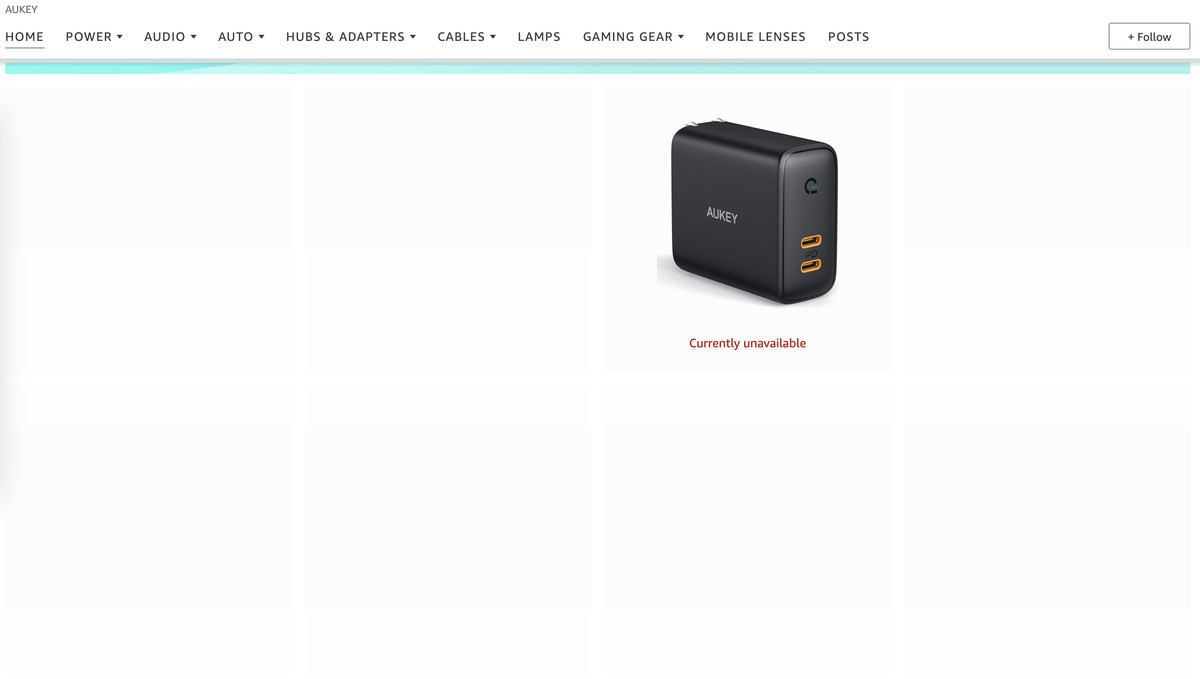
Many Amazon listings for two major electronics sellers have mysteriously disappeared as of Monday afternoon, and it’s unclear exactly what might be going on.
Here are a few screenshots from Aukey’s Amazon page, taken shortly after 12PM ET on Monday. Aukey is a major seller of chargers, portable batteries, and more, but its Amazon page has a whole lot of blank product boxes and products listed as “currently unavailable.”

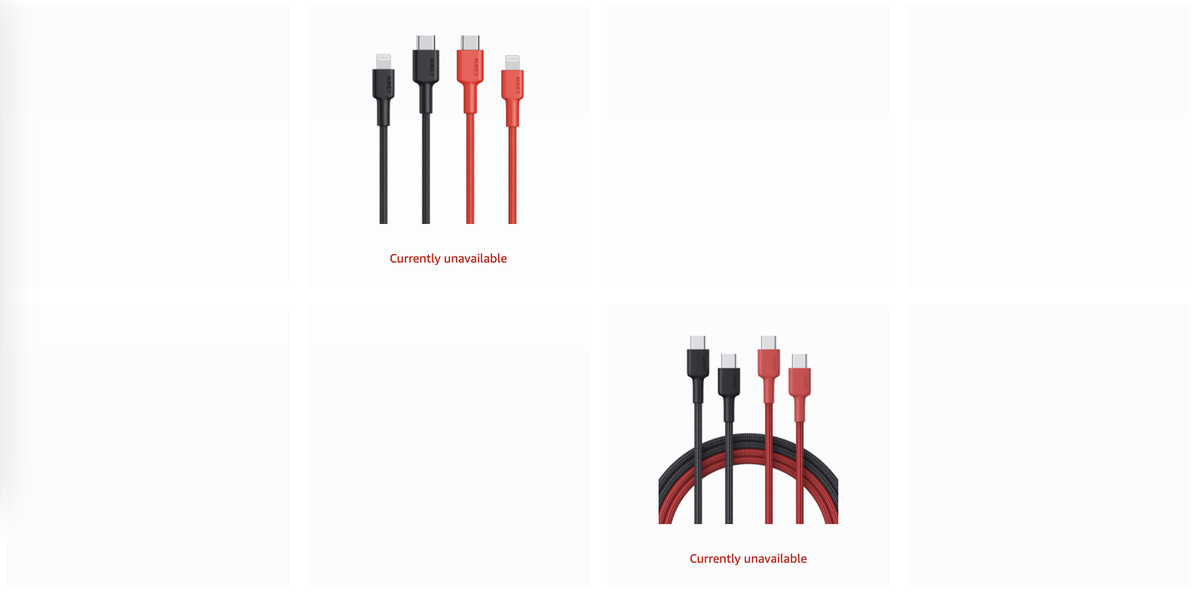

And if I search “Aukey” on Amazon, the top results are for two massage guns, a home oven, and a keyboard — not chargers or cables.
Mpow, another big seller known for headphones, car mounts, and more, similarly has an Amazon page filled with “currently unavailable” listings.
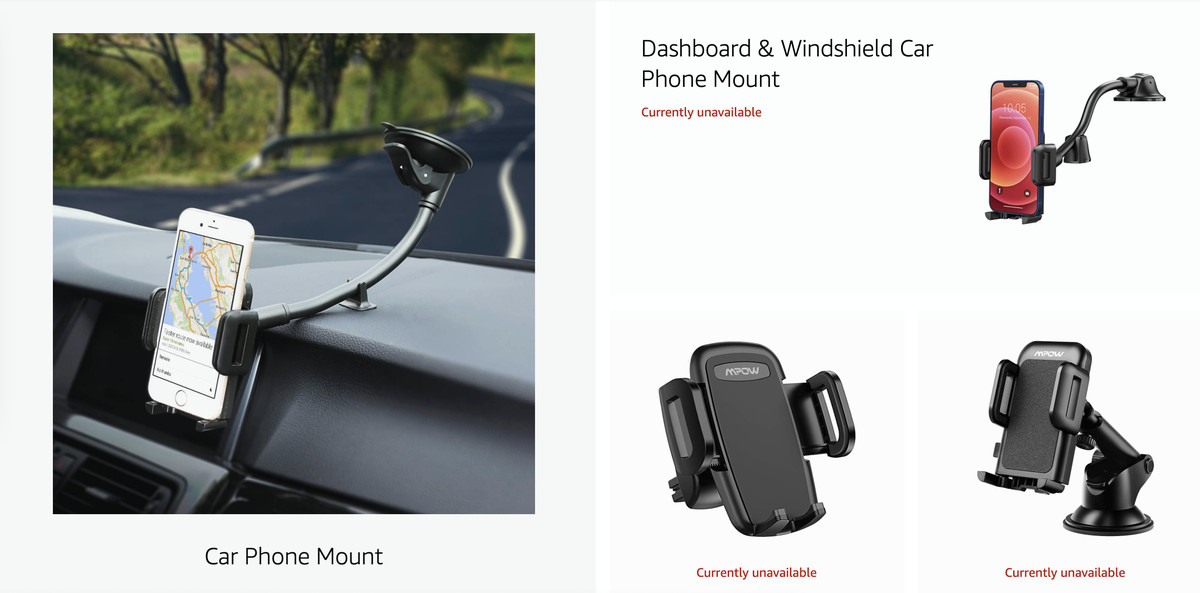
It’s not clear why Aukey’s and Mpow’s listings have disappeared. Their disappearance is particularly weird when I can see that listings from other big sellers in the accessories space, including Anker, Belkin, RAVPower, and Satechi, appear to be working as normal as of Monday evening.
Aukey and Mpow have not responded to requests for comment.
Amazon would not confirm or deny whether it had removed these items — but it did provide a statement in response to our question that at least suggests these companies may have had some funny business going on:
We work hard to build a great experience for our customers and sellers and take action to protect them from those that threaten their experience in our store. We have systems and processes to detect suspicious behavior and we have teams that investigate and take action quickly.
We have long-standing policies to protect the integrity of our store, including product authenticity, genuine reviews, and products meeting the expectations of our customers. We take swift action against those that violate them, including suspending or removing selling privileges. We take this responsibility seriously, monitor our decision accuracy and maintain a high bar. We have an appeals process where sellers can explain how they will prevent the violation from happening in the future or let us know if they believe they were compliant. Our teams are based in our Seattle headquarters and around the globe in order to provide sellers with 24/7 support via email, phone, and chat in more than 15 languages.
Amazon is rife with scams, and the company puts a lot of resources into fighting them — Amazon just today revealed that it blocked more than 10 billion suspected bad listings before they were ever published in 2020, for example. Aukey and Mpow aren’t exactly small third-party sellers, though, which make their disappearing listings even more mysterious.
Last week, an unconfirmed report from antivirus review website SafetyDetectives apparently revealed how some Amazon vendors figured out a quiet way to solicit and pay for fake five-star reviews — something that’s obviously against Amazon’s rules. While it’s not clear if the missing listings are connected in any way to the report — which does not name vendors who may be participating in the practice — we found two accounts describing how Mpow used review-soliciting tactics similar what was uncovered in SafetyDetectives’ article, and XDA Developers journalist Corbin Davenport said that an Aukey standing desk he’s reviewing included a message offering $100 in exchange for an “honest review.”
Amazon has suspended over a dozen Chinese sellers for participating in fake review schemes. The list includes Mpow and Aukey, two of the biggest electronics Amazon-native brands out of China. The total sales by the suspended sellers eclipses $1 billion.
Amazon started suspending sellers at the end of April. More than ten days later, the sellers are still blocked. The suspension wasn’t temporary or accidental and appeared to focus on a few biggest brands. Mpow, for example, was sold by multiple sellers (some run by the company, some that identify as authorized resellers, some with an unknown relationship with Mpow). Amazon suspended all.
The brands suspended are Mpow, Aukey, VicTsing, Tacklife, Austor, Vtin, Seneo, Homasy, Homitt, LITOM, TopElek, OMORC, TRODEEM, Atmoko, HOMTECH, OKMEE, and others. More than a dozen sellers sold them on Amazon in the U.S. Additionally, Amazon has also suspended the same sellers on its international marketplaces.
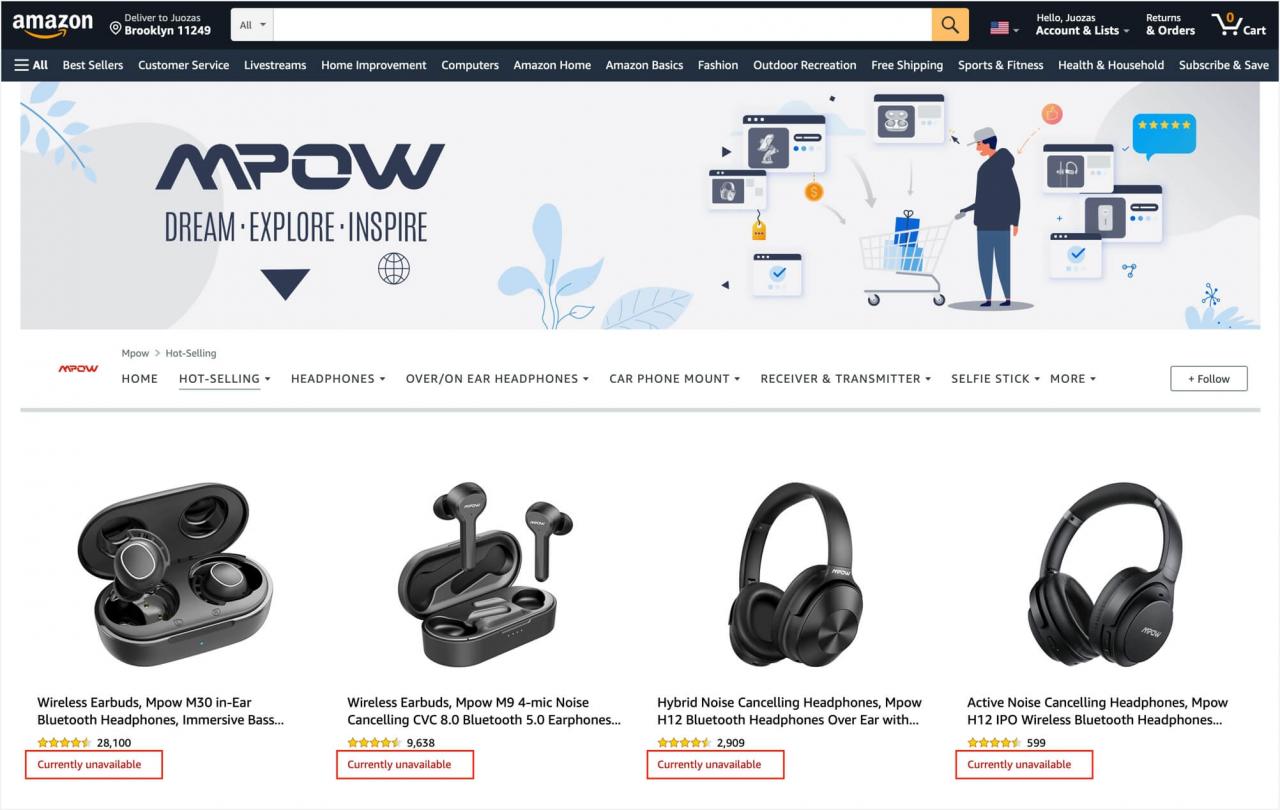
The suspensions started speculations on what could have caused them. The most likely explanation is the act of trying to grow the number of positive product reviews through banned techniques, for example, including postcards with the order asking for a review or doing product giveaways in exchange for a review.
Mpow, Aukey, and others are some of the most successful sellers on Amazon with products with tens of thousands of reviews. They likely got away with using banned techniques thanks to their size. It is open to question why Amazon decided to act now; those sellers have been infamous for their practices for a long time.
Suspending them is perhaps Amazon’s most notable and substantial enforcement of its rules yet.
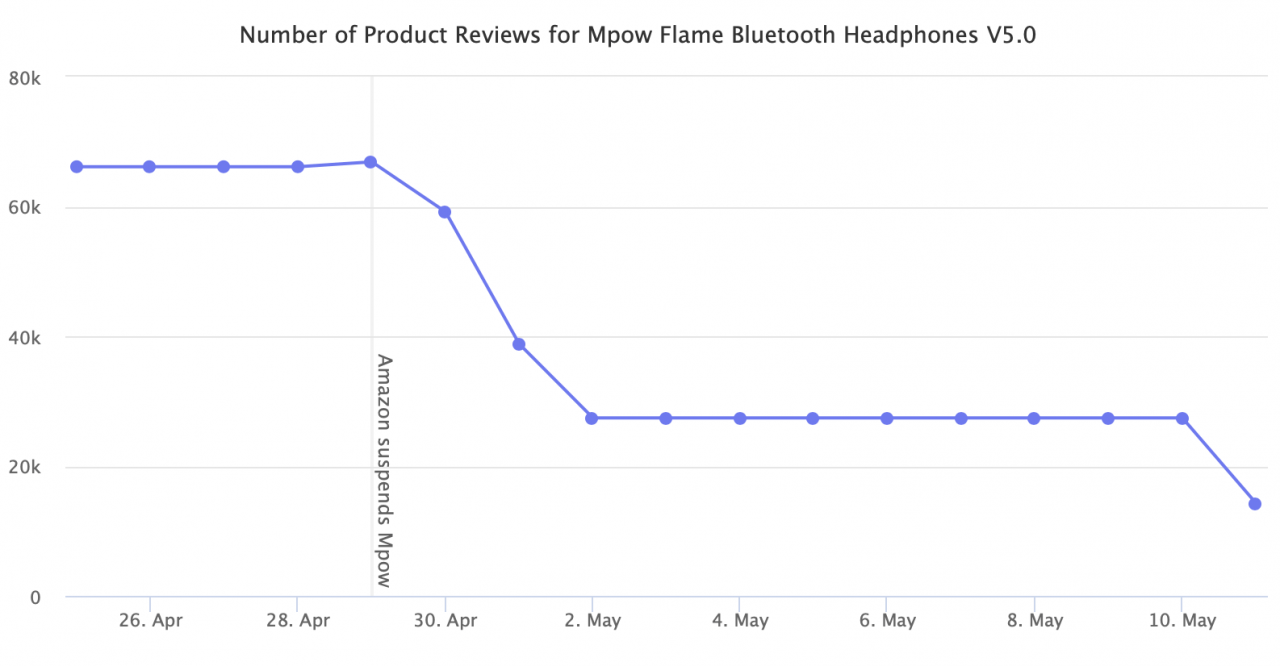
Amazon has now started deleting product reviews for the suspended brands, confirming the suspicion. For example, one of Mpow’s best-selling wireless headphones went from over 66,000 reviews to 14,000. If Amazon were to undo the suspension, the sellers wouldn’t be starting from the same spot.
Unlike most Amazon suspensions, this one will get noticed by consumers too. The suspended brands have been around for years and were not fly-by-night products. Mpow products made up on average ten of the top 100 products in the Headphones category for years. A category notorious for short-lived brands.
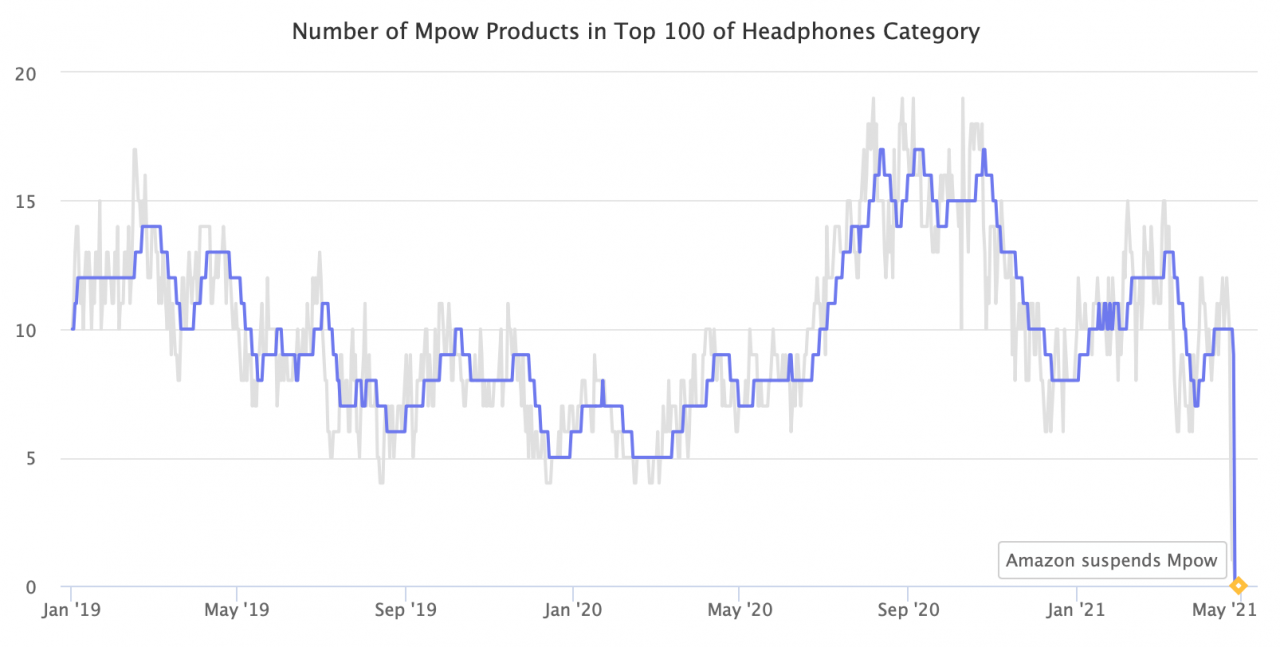
Anker, the most successful Amazon-native brand out of China, went public last year and was both a competitor and the inspiration for brands like Mpow. While not at Anker’s level yet, Mpow and Aukey were aiming to do just as well.
There is no indication that Amazon has developed new techniques to catch sellers launching with the help of fake reviews. These suspensions were considered decisions. However, the revenue size of sellers suspended and their visibility to consumers as best-sellers is significant.
In addition to your healthy dose of skepticism for random reviews, you should also consider installing an extension like Fakespot or ReviewMeta to help you figure out what products seem legitimately reviewed and which seem…overly boastful.
Beyond that, SafetyDetectives has a large list of tips you should keep in mind when you’re trying to figure out whether a product’s reviews are honest or not. They include:
- Be skeptical of extreme reviews. The ‘perfect’ product rarely exists. If a product has a ton of overbearingly positive reviews (especially when compared to similar products), you should question the legitimacy of those reviews. You should also look out for reviews that are 100% positive or 100% negative.
- Look for suspicious language. Fake reviews often use less emotional language, and they can be hard to read. A fake review may even read like an advert, badmouthing the product’s competitors in the process.
- Look for generic statements about the product. Several of the five-star reviews may highlight the same plus points, or the reviews could generally lack variance – not revealing anything about each individual’s specific experience. Fake reviews might contain lots of generic keywords, too, or reference the brand’s name multiple times.
My favorite trick is an easy one: Don’t read the five-star reviews. Go read the one- and two-star reviews to check a product’s potential deficiencies (especially if a lot of people are saying the same thing about a particular aspect of what you’re purchasing). Bonus points if those reviews call out other reviews for being fake or suspicious; then you know you might have a product on your hands that warrants more investigation than a simple “Buy it now.”